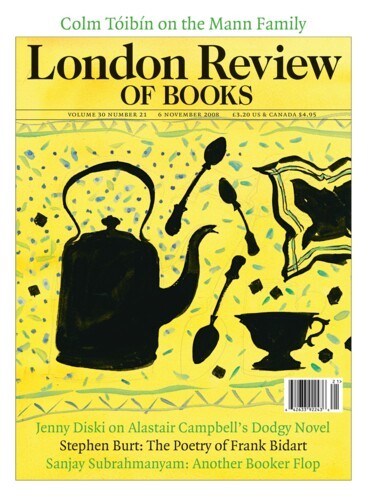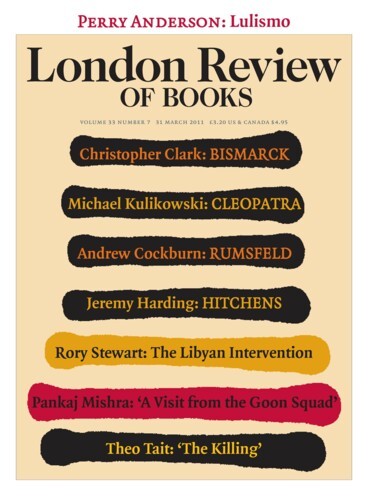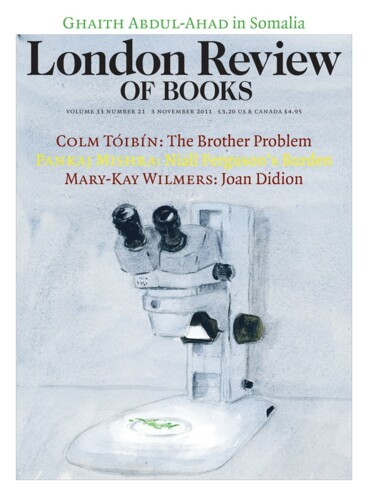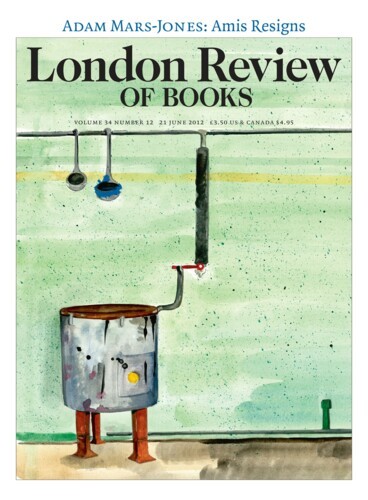Pankaj Mishra
Pankaj Mishra’s books include Age of Anger: A History of the Present, From the Ruins of Empire: The Intellectuals Who Remade Asia and two novels, the more recent of which is Run and Hide.
Modernity’s Undoing: ‘A Visit from the Goon Squad’
Pankaj Mishra, 31 March 2011
‘America created the 20th century,’ Gertrude Stein wrote in The Autobiography of Alice B. Toklas, ‘and since all the other countries are now either living or commencing to be living a 20th-century life, America having begun the creation of the 20th century in the sixties of the 19th century is now the oldest country in the world.’ She meant, quite reasonably, that America was the oldest country in the world because it was the first to be modern. By 1933, Stein had already witnessed the industrialisation of America and the new technologies of standardisation and control unleashed by Fordism and Taylorism. Had she lived longer into the 20th century, one can only imagine what she would have made of the many organisation men, hidden persuaders and lonely crowds still to come, or of the other ideological prisons created by the national security state and the Cold War.
Watch this man: Niall Ferguson’s Burden
Pankaj Mishra, 3 November 2011
‘Civilisation’s going to pieces,’ Tom Buchanan, the Yale-educated millionaire, abruptly informs Nick Carraway in The Great Gatsby. ‘I’ve gotten to be a terrible pessimist about things. Have you read The Rise of the Colored Empires by this man Goddard? … The idea is if we don’t look out the white race will be – will be utterly submerged.’
Watch this man
3 November 2011
Why weren’t they grateful? Mossadegh
Pankaj Mishra, 21 June 2012
In 1890, an itinerant Muslim activist called Jamal al-din al-Afghani was in Iran when its ruler granted a tobacco concession to a British businessman, effectively granting him a monopoly on its purchase, sale and export. Al-Afghani set up pressure groups in Tehran which sent anonymous letters to officials and distributed leaflets calling on Iranians to revolt. Helped by the recently introduced telegraph, the mass demonstrations of the Tobacco Protest, as it came to be called, were as carefully co-ordinated as they would be in Khomeini’s Islamic Revolution.
Podcasts & Videos
States of Shock
Pankaj Mishra and Adam Shatz
Pankaj Mishra talks to Adam Shatz about his latest piece for the LRB, which looks at the ways the US and UK have responded to the Covid-19 pandemic and Black Lives Matter protests, and what those botched...
Pieces about Pankaj Mishra in the LRB
Am I right to be angry? Superfluous Men
Malcolm Bull, 2 August 2018
In The Passions and the Interests, published in 1977, Albert Hirschman revisited the 18th-century argument that the pursuit of worldly self-interest might be the most effective way of...
Read anywhere with the London Review of Books app, available now from the App Store for Apple devices, Google Play for Android devices and Amazon for your Kindle Fire.
Sign up to our newsletter
For highlights from the latest issue, our archive and the blog, as well as news, events and exclusive promotions.




